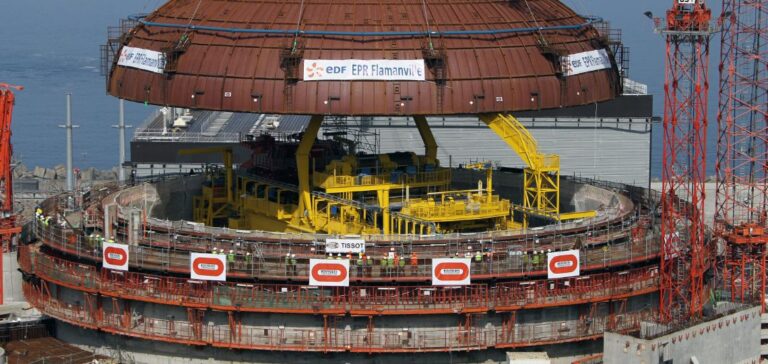The detailed evaluation of costs and schedule for the construction of six EPR2 reactors by EDF, part of France’s nuclear energy revival plan, has been postponed by several months, according to a source close to the electricity provider. This decision aims to ensure long-term competitiveness and minimise risks associated with the programme.
A revised schedule set for December 2025
Initially expected by the end of 2024, the new timeline, established in coordination with the state, now targets completion in December 2025. This revision seeks to prevent cost and schedule overruns similar to those experienced in the Flamanville EPR project, which faced a 12-year delay.
A significant increase in costs
At the end of 2023, EDF estimated the cost of the six EPR2 reactors at €67.4bn, marking a 30% increase compared to initial projections. This rise has led the company to initiate a phase of cost and schedule optimisation to better manage expenses and delivery timelines.
State-backed financial framework
Energy Minister Marc Ferracci stated that the total project cost would remain below €100bn for the three reactor pairs. The financing plan, set to be announced in the coming weeks, will be modelled on schemes approved by the European Commission, such as the Czech Dukovany project, which was primarily funded through a state-backed zero-interest loan.
Prior approval by the Nuclear Policy Council
The project’s key parameters must first be approved by the Nuclear Policy Council, chaired by Emmanuel Macron, before being submitted to the European Commission to ensure compliance with competition regulations. This methodical approach is considered necessary due to the project’s financial scale and long-term impact on France’s energy policy.






















